The driver who cut me off really did behave like an idiot. But he wasn’t the one who built the wall or closed the tunnel.
I finished a work meeting in Jerusalem at 5 pm and called my partner, Osama.
“I’m leaving now, sweetheart. Do you want me to make dinner when I get home?”
“That would be great,” he said. “We’re waiting for you.”
Waze informed me that it would take a half hour to get to the settlement of Givat Ze’ev, where there is an opening in the separation barrier that allows passage to the enclave containing the Palestinian villages of Jib and Bir Nabala. Walls and fences surround the villages from all sides, cutting them off from Jerusalem and Ramallah and placing the nearby Israeli settlements on the Jerusalem side of the barrier. A tunnel below the wall serves as the only passage to and from Ramallah.
I drove over the checkpoint’s speed bumps and entered the village of Jib. Minivans stood on the side of the narrow road, picking up workers returning from their jobs in Israel or in settlements. About a kilometer from the exit tunnel, the traffic stopped. A long line of cars lined the road, indicating that the tunnel was closed. Ten minutes passed, then twenty. I began to feel a sense of helplessness. The checkpoint through which I had entered is for incoming traffic only. I couldn’t use it to drive back to Jerusalem. The other drivers and I were trapped in the enclave.
I called Osama: “There’s a delay in Bir Nabala. Can you make dinner? Including vegetables for the children?”
“No problem,” he said.
Drivers behind me began to bypass the cars waiting in line, to get closer to the tunnel. They drove in the lane intended for oncoming traffic, blocking travel from the direction of the tunnel. I cursed them silently and then I saw other cars using dirt paths to travel parallel to the main road, pushing to rejoin the main road at the head of the line of waiting cars. People began returning on foot from the direction of the tunnel, young couples holding hands and others updating their loved ones by phone. I opened the window and asked one of the pedestrians what was happening.
“Army,” he said. “We’ll have a delay of at least two hours.”
I texted Osama: “Flying checkpoint. Don’t wait for me for dinner.” In response he sent a photo of the cauliflower he had roasted in the oven for the children. “We are obeying your orders,” he wrote.
Forty-five minutes later, the traffic started to crawl forward. Drivers pushed to approach the tunnel, while other cars tried to pass from the opposite direction, honking their horns in protest. I was furious at the idiots who kept cutting in front of me, who were blocking the road, who thought their time was more important than that of others. I managed to advance a hundred meters, and I saw four army jeeps leaving the tunnel and driving up the hill. An electric gate opened inside the wall, and the jeeps passed through it to the road above, the extension of Road 443, open to Israeli cars only.
I fought the other drivers to keep my place in line. A newish looking black Mazda surprised me from behind and almost took off my side mirror in an attempt to cut in front of me.
Fifteen minutes later, I made it through the tunnel. But the army had closed the road on the other side, too. It’s hard to know why. Perhaps as part of the military policy of “making your presence felt,” in which they erect checkpoints and stop traffic randomly and intermittently, today at the height of rush hour. Flying checkpoints are not unusual, but they still manage to achieve their goal: to undermine the feeling of security and the illusion of control over one’s daily routine, for those whose return home is delayed for hours.
I followed a line of cars that exited the main road and entered the village of Qalandia, assuming they knew an alternative route to Ramallah. Residents stepped out of their homes to watch the long line of cars descending on their quiet village. The village ended, and we continued on a narrow, rocky dirt path that curved around the hills, parallel to the separation wall. I heard the scratch of thorns scraping against the doors of my car. It was quiet. Stars sparkled overhead. My body was tense, trying to keep the car from slipping down the slope of the path. I regretted leaving the main road.
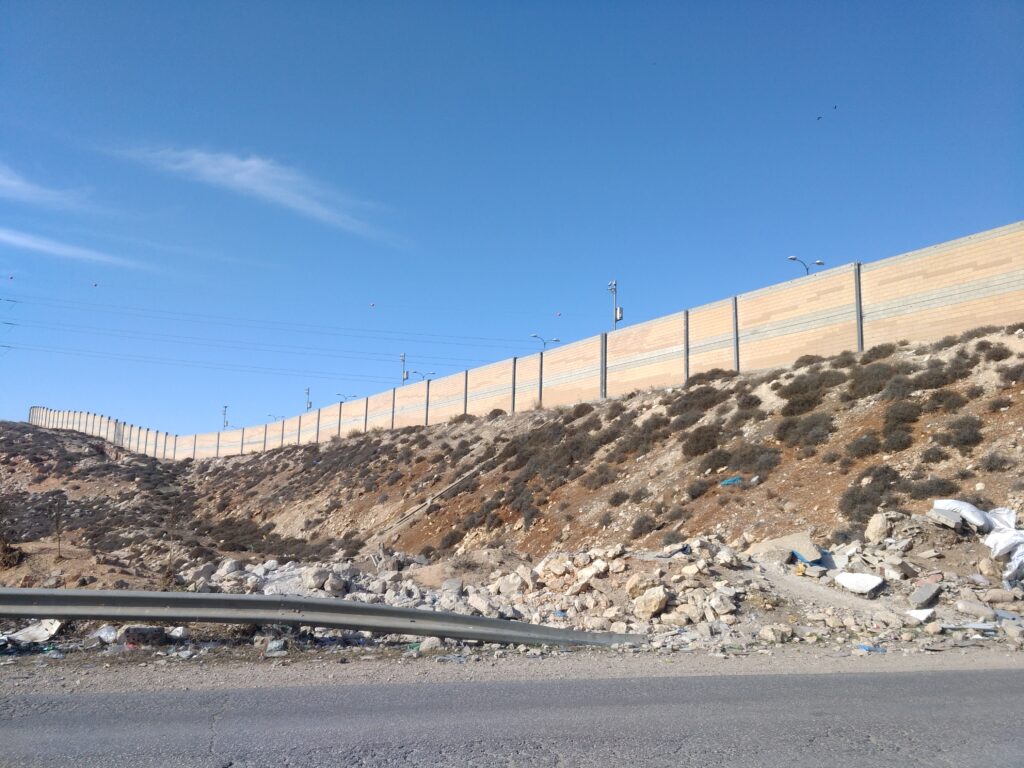
Jerusalem was just a few hundred meters on the other side of the wall, so my reception from the Israeli company Cellcom was excellent. I called Osama: “Put the kids to bed without me,” I told him. “I have no idea when I’ll get home.”
“Are you OK?” he asked. I heard Adam’s voice in the background: “Ima! Ima! Ice cream!”
“I gave them ice cream and told them not to tell you,” Osama said.
At an especially narrow part of the road, as we were pressed between the wall and a precipice leading into a field of thorn bushes, there was a moment of solidarity: Three young men got out of a minivan and directed the other drivers and me, so that we wouldn’t slip. But as soon as the road widened, the minivan cut me off, as did other cars, because we had finally reached a paved road and a residential street.
Was I in Kufr Aqab? I tried to find the way to Ramallah but got mixed up and drove for kilometers in the wrong direction. When I realized my mistake, tears of frustration sprang to my eyes. It was 8:30 pm. Why had I gotten off the main road? Why am I so bad at directions? Why were the other drivers so aggressive? And why am I blaming them and myself?
It wasn’t the first time that I had to admire the genius of the architecture of occupation, that not only maximizes Israeli control but also shapes Palestinian behavior. They built a wall that surrounds four villages from all sides. They dug a tunnel to allow exit, but then they closed the tunnel for two hours, to remind residents that the army is in control. They prevented Palestinian police officers from reaching the enclave to impose order in the chaos that ensued, because the villages are classified as Area “B” under the Oslo accords, where the Palestinian police is forbidden to operate. The soldiers were invisible to us, and the wall has become part of the landscape. So, like other drivers, I got angry at the idiot behind me who cut me off. And he really did behave like an idiot. But he wasn’t the one who built the wall or closed the tunnel.
I made a U-turn. I drove back toward Ramallah.
This post was also published at haaretz.com on June 15, 2020 : https://www.haaretz.com/israel-news/the-idiot-who-cut-me-off-did-not-build-the-checkpoint-that-ruined-our-day-1.8922173
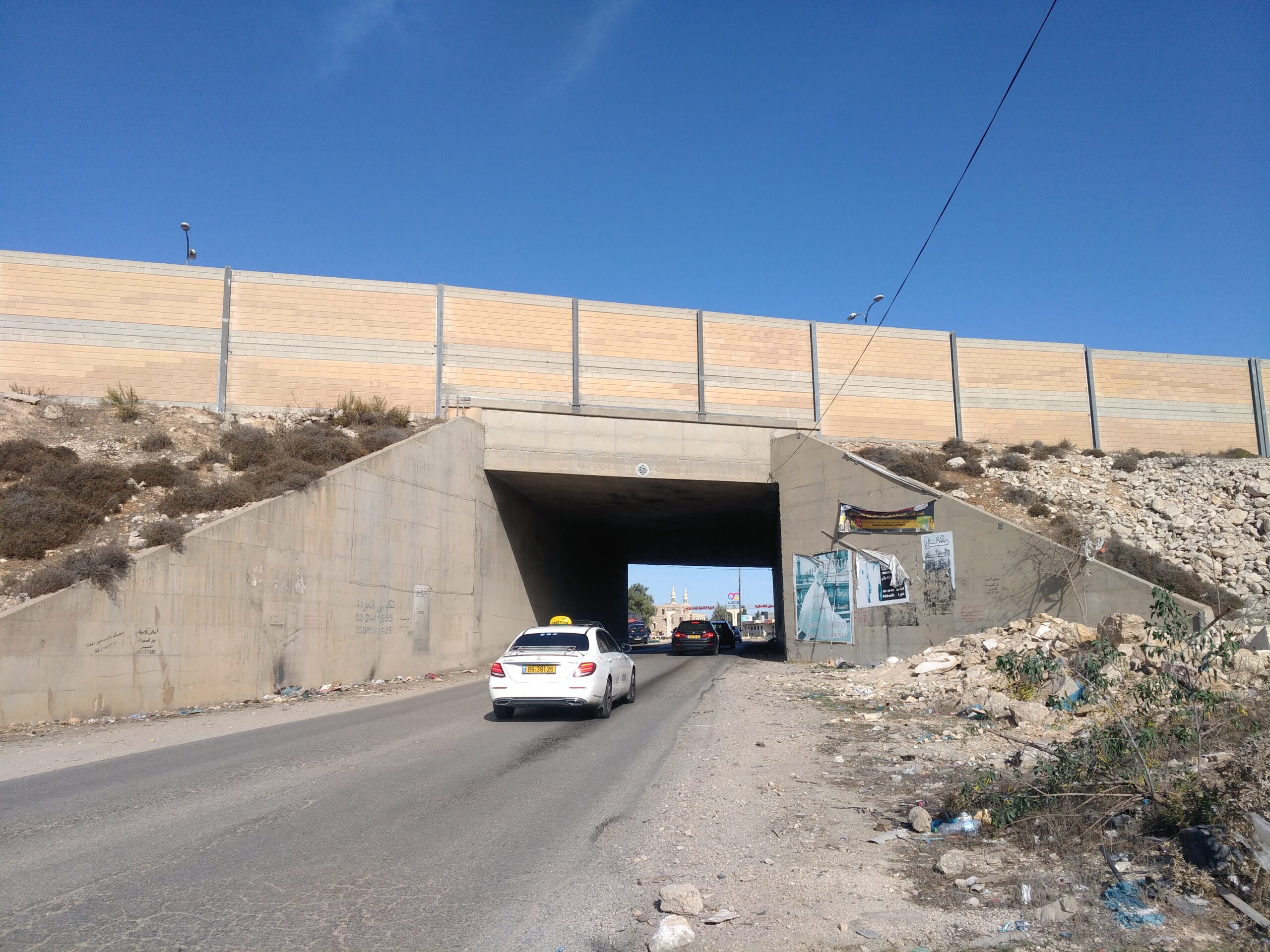
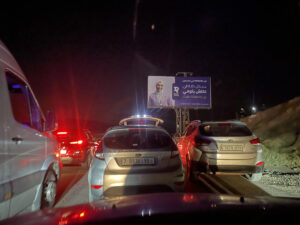
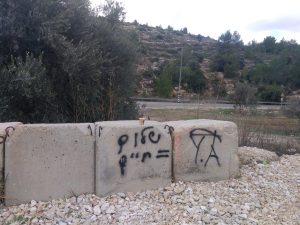
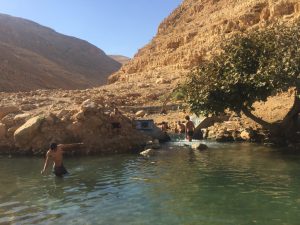
שלום שרי , קראתי את הסיפור האישי שלך , זו לא פעם ראשונה שאני קורא סיפורים כאלה אפילו דומים מאוד של אנשים אחרים .
כישראלי יהודי , אני לא מתבר לכותרת שכתבת “אדריכלות הכיבוש” .
לצערי , זה כורח המציאות .
בנוסף , יש לך אתר מעניין אבל הוא מראה רק את נקודת המבט שלך כיהודייה שנשואה לפלסטיני ואולי את כבר לא אובייקטיבית .
תודה, יגאל על הקריאה ועל המשוב.